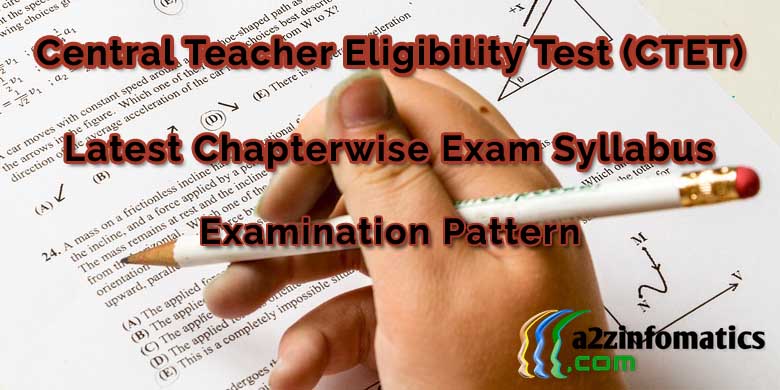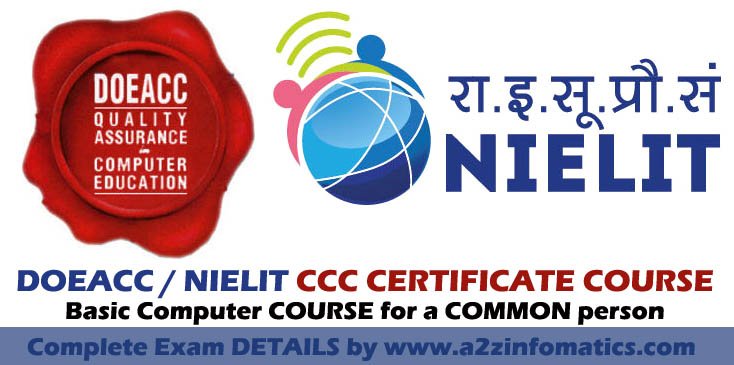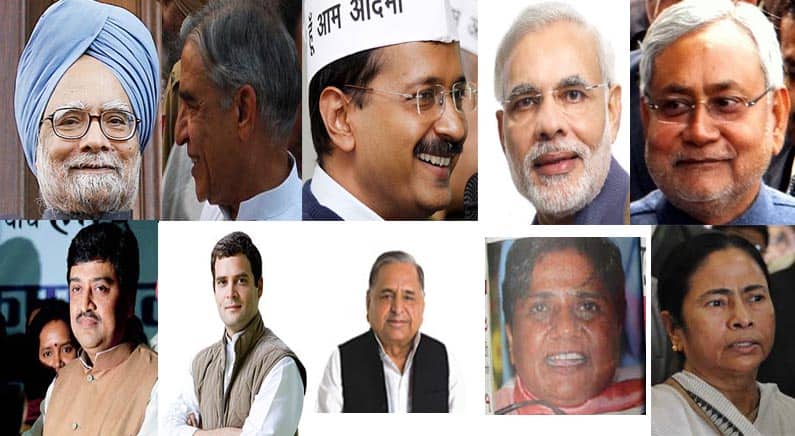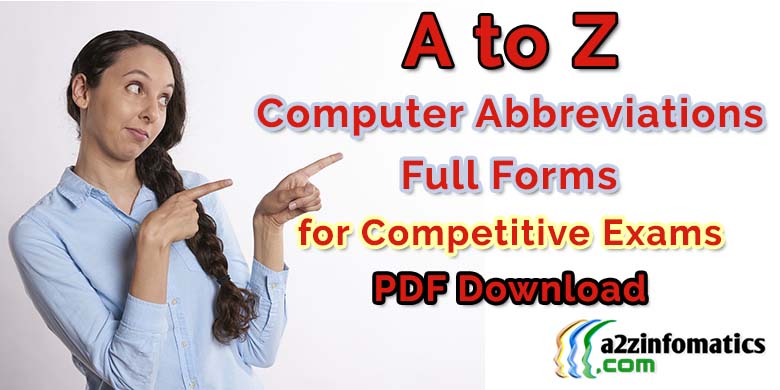Although, there is no official announcement about the CTET 2018 notification release date, still many reputed sources had confirmed that the CTET 2018 examination is expected to held in March 2018. Candidates from all around the country are eagerly waiting to know the CTET 2018 examination date, so that they can start their study and take first step forward to crack CTET 2018 exam. For the same cause, today we are here with the latest CTET Exam 2018 Syllabus with CTET 2018 Examination Pattern. Once you go through with the structure and content of the CTET 2018 syllabus, you will surely feel confident and get fully aware with the CTET Examination pattern. For more CTET 2018 examination details like exam date, eligibility, fees, online registration form start date, admit card and CTET results, you can anytime check the related source published earlier.

CTET 2018 Examination Pattern (Paper-1, Class 1 to 5, Primary).
[table id=3 /]
Latest CTET 2018 Examination Syllabus (Paper-1, Class 1 to 5, Primary).
1)- Child Development and Pedagogy.
a)- Child Development (Primary School Child).
- Concept of development and its relationship with learning.
- Principles of the development of children.
- Influence of Heredity & Environment.
- Socialization processes: Social world & children (Teacher, Parents, Peers).
- Piaget, Kohlberg and Vygotsky: constructs and critical perspectives.
- Concepts of child-centered and progressive education
- Critical perspective of the construct of Intelligence
- Multi Dimensional Intelligence
- Language & Thought
- Gender as a social construct; gender roles, gender-bias and educational
practice - Individual differences among learners, understanding differences based
on diversity of language, caste, gender, community, religion etc. - Distinction between Assessment for learning and assessment of learning; School-Based Assessment, Continuous & Comprehensive Evaluation: perspective and practice.
- Formulating appropriate questions for assessing readiness levels of learners; for enhancing learning and critical thinking in the classroom and for assessing learner achievement.
b)- Concept of Inclusive education and understanding children with special needs.
- Addressing learners from diverse backgrounds including disadvantaged and deprived.
- Addressing the needs of children with learning difficulties, ‘impairment’ etc.
- Addressing the Talented, Creative, Specially abled Learners.
c)- Learning and Pedagogy.
- How children think and learn, how and why children ‘fail’ to achieve success in school performance.
- Basic processes of teaching and learning; children’s strategies of learning; learning as a social activity, social context of learning.
- Child as a problem solver and a ‘scientific investigator’.
- Alternative conceptions of learning in children, understanding children’s ‘errors’ as significant steps in the learning process.
- Cognition & Emotions.
- Motivation and learning.
- Factors contributing to learning – personal & environmental.
2)- Language 1.
a)- Language Comprehension.
Reading unseen passages – two passages one prose or drama and one poem with questions on comprehension, inference, grammar and verbal ability (Prose passage may be literary, scientific, narrative or discursive).
b)- Pedagogy of Language Development.
- Learning and acquisition.
- Principles of language Teaching.
- Role of listening and speaking; function of language and how children use it as a tool.
- Critical perspective on the role of grammar in learning a language for communicating ideas verbally and in written form.
- Challenges of teaching language in a diverse classroom; language difficulties, errors and disorders.
- Language Skills.
- Evaluating language comprehension and proficiency: speaking, listening, reading and writing
- Teaching- learning materials: Textbook, multi-media materials, multilingual resource of the classroom.
- Remedial Teaching.
3)- Language 2.
a)- Comprehension.
Two unseen prose passages (discursive or literary or narrative or scientific) with question on comprehension, grammar and verbal ability.
b)- Pedagogy of Language Development.
- Learning and acquisition.
- Principles of language Teaching.
- Role of listening and speaking; function of language and how children use it as a tool.
- Critical perspective on the role of grammar in learning a language for communicating ideas verbally and in written form.
- Challenges of teaching language in a diverse classroom, language difficulties, errors and disorders.
- Language Skills.
- Evaluating language comprehension and proficiency: speaking, listening, reading and writing.
- Teaching – learning materials: Textbook, multi-media materials, multilingual resource of the classroom.
- Remedial Teaching.
4)- Mathematics.
a)- Content.
- Geometry.
- Shapes & Spatial Understanding.
- Solids around Us.
- Numbers.
- Addition and Subtraction.
- Multiplication.
- Division.
- Measurement.
- Weight.
- Time.
- Volume.
- Data Handling.
- Patterns.
- Money.
b)- Pedagogical issues.
- Nature of Mathematics/Logical thinking; understanding children’s thinking and reasoning patterns and strategies of making meaning and learning.
- Place of Mathematics in Curriculum.
- Language of Mathematics.
- Community Mathematics.
- Evaluation through formal and informal methods.
- Problems of Teaching.
- Error analysis and related aspects of learning and teaching.
- Diagnostic and Remedial Teaching.
5)- Environmental Studies.
a)- Content.
- Family and Friends (Relationships, Work and Play, Animals & Plants).
- Food.
- Shelter.
- Water.
- Travel.
- Things We Make and Do.
b)- Pedagogical Issues.
- Concept and scope of EVS.
- Significance of EVS, integrated EVS.
- Environmental Studies & Environmental Education.
- Learning Principles.
- Scope & relation to Science & Social Science.
- Approaches of presenting concepts.
- Activities.
- Experimentation/Practical Work.
- Discussion.
- CCE.
- Teaching material / Aids Problems.
Please visit Page no 2 for Latest CTET 2018 Exam Syllabus (Paper-2, class 6 to 8, Elementary Stage).





